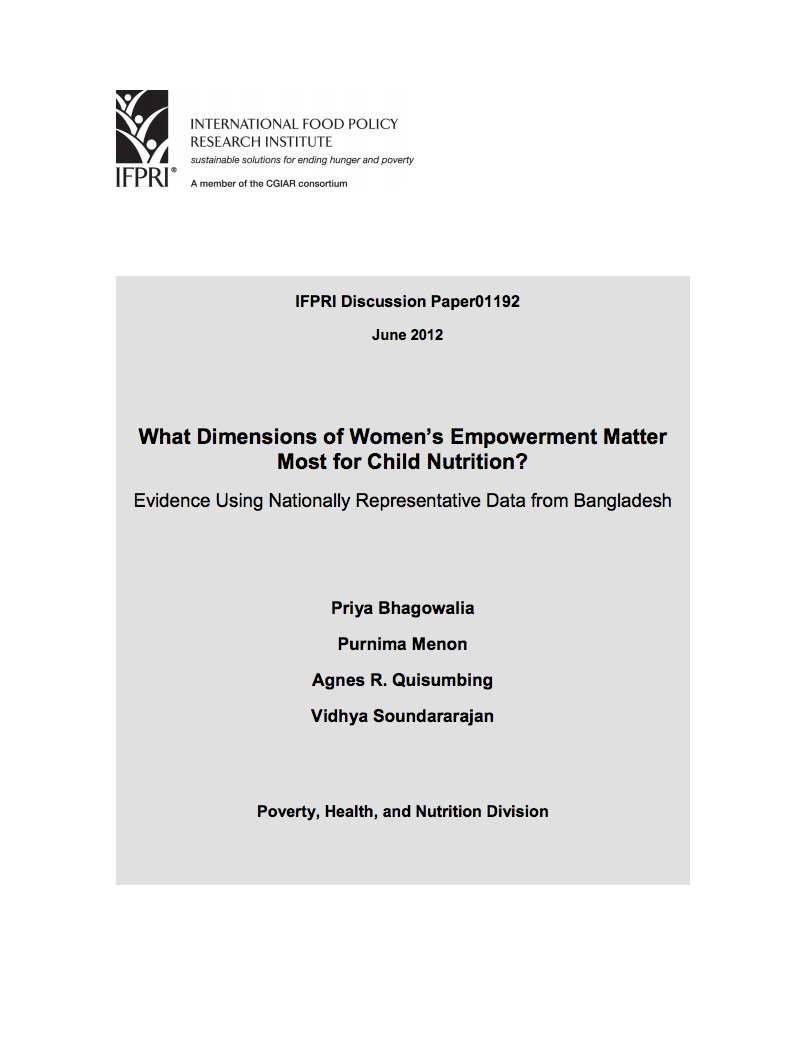What Dimensions of Women’s Empowerment Matter Most for Child Nutrition?
Evidence Using Nationally Representative Data from Bangladesh
Resource information
Date of publication
Mayo 2012
Resource Language
ISBN / Resource ID
880336880
Pages
32
License of the resource
We use data from the 2007 Bangladesh Demographic and Health Survey to examine the relationship between women’s status and nutrition in Bangladesh using indicators of empowerment such as mobility, decisionmaking power, and attitudes toward verbal and physical abuse. We also examine the role of variables reflecting maternal education and height, in relation to child nutrition. All models control for age and sex of the child, household wealth, and region. Results from logit models indicate that both a greater degree of women’s empowerment and greater maternal endowments are associated with better long-term nutritional status of children.
Publisher(s)
Data Provider
Geographical focus


